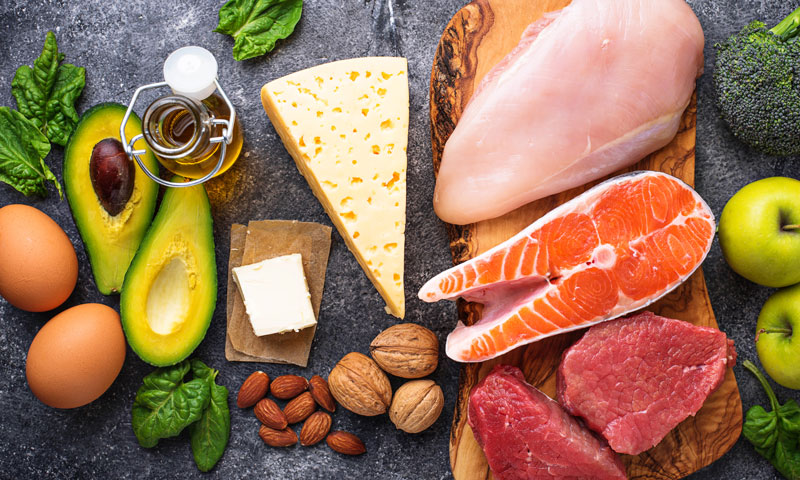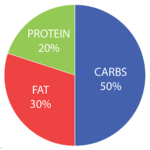
Are you tired of the same old diets that promise results but never quite deliver? Look no further than the keto diet, which has taken the health and wellness world by storm. But what makes it different from other fad diets? In this comprehensive review on Rogueshul.com, we’ll unpack not just one, but three major benefits of the keto diet – from weight loss to improved cognitive function – so you can decide if it’s right for you. Get ready to unlock your full potential with Keto x3!
What is a Keto Diet?
There are a lot of misconceptions out there about the keto diet, which is why we wanted to take the time to unpack all of its benefits. The keto diet is a low-carbohydrate, high-fat diet that has been shown to be effective for weight loss and overall health. It’s also been shown to improve blood sugar levels and reduce inflammation. Here are five reasons why you should consider trying the keto diet:
1. Keto can help you lose weight quickly.
A study published in The American Journal of Clinical Nutrition found that people who followed a ketogenic diet experienced greater weight loss than those on a standard American Dietetic Association (ADA) diet over 12 weeks. In fact, the study found that participants lost an average of 9 pounds more than those on the ADA diet! Additionally, research from University of Illinois at Urbana-Champaign suggests that adults following a ketogenic diet may also decrease their risk of developing type 2 diabetes or heart disease.
2. Keto can improve your blood sugar levels.
The keto diet has been shown to reduce blood sugar levels in individuals with type 2 diabetes, which is beneficial because high blood sugar levels can lead to insulin resistance and other health problems. Additionally, the keto diet has been shown to improve glycemic control in people with prediabetes or type 1 diabetes – something that cannot be said for many other types of diets.
3. Keto can
What are the Benefits of a Keto Diet?
A ketogenic diet, or “keto” diet for short, is a low-carbohydrate, high-fat diet that was first used in the 1920s as a treatment for epilepsy. Recently, it has gained popularity as a weight loss plan and as a way to improve overall health.
There are a number of purported benefits to following a keto diet, including improved mental clarity and energy levels, reduced inflammation and pain, better blood sugar control and reduced risk of developing chronic diseases such as cancer.
While there is significant research on the benefits of keto diets, many of these claims remain unproven or inconclusive. That said, there are many people who swear by the keto lifestyle and believe that it can help them achieve their fitness goals, maintain their weight loss progressions or improve their overall health. If you’re curious about giving the keto diet a try but aren’t sure if it’s right for you, read on for our comprehensive review of the pros and cons of this popular eating style.
How do I Start a Keto Diet?
There are many things to consider when starting a keto diet, but the most important thing is to make sure you have all of the right tools. Here are some tips for getting started:
1. Set realistic goals. If you’re just starting out, don’t expect to be able to go keto overnight. It can take weeks or even months before your body adapts and starts burning fat for energy instead of carbs.
2. Get organized. Having a plan will make it easier for you to stick to your keto diet and track your progress. Make a list of the foods you’ll avoid and the foods you’ll allow yourself while on keto, and keep it handy so you don’t forget what’s allowed.
3. Consult with a healthcare professional. If you have any health concerns, talk to your doctor before starting a keto diet. They can help guide you through the changes that will happen in your body and check for any potential side effects early on in your journey.
4. Be prepared to adjust your lifestyle habits. When starting a new diet, it’s common for people to make several adjustments along the way—including changing their exercise routine and sleeping habits—in order to make sure they’re sticking to the plan. Be prepared for these changes and be patient with yourself; it takes time for your body to adjust!
Is a Keto Diet Safe?
A keto diet is a low-carbohydrate, high-fat diet that has been shown to be effective for weight loss. Some people may find the diet to be restrictive and difficult to follow, but it is worth considering if you are looking to improve your health. Here are some key things to know about the keto diet:
1. The keto diet is safe for most people. While there may be some minor side effects in the beginning, such as constipation or bad breath, these are usually temporary and can be easily resolved.
2. The keto diet can help you lose weight rapidly. In fact, many people found that they were able to lose up to 10 pounds within the first week of following the keto lifestyle.
3. The keto diet is good for your overall health. Not only does it promote weight loss, but it has also been linked with reductions in cholesterol and triglycerides, improvements in blood sugar control, and reductions in inflammation throughout the body.
What Foods can I Eat on a Keto Diet?
On the keto diet, you’ll be able to enjoy plenty of healthy, high-fat foods. This includes things like meat, fish, eggs, cheese, and other dairy products. You can also enjoy low-carb fruits and vegetables, as well as nuts and seeds. In addition to all of these delicious options, you can also use keto meal plans to help make sure you’re eating the right things every day.
What Foods Can I Eat on a Keto Diet?
When starting a keto diet, one of the first questions that may come to mind is what foods are allowed on the diet. Fortunately for keto beginners, there are a variety of foods that are allowed on this type of diet.
Here is a list of some of the most common types of food that are allowed on a keto diet:
-Meat (beef, lamb, pork, chicken breast),
-Fish (salmon, tuna),
-Eggs (cooked or raw),
-Cheese (full fat or low fat),
-Produce (cucumber, onion, avocado),
-Nuts and seeds (almonds, walnuts).






